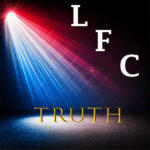By Brian Massie, A Watchman on the Wall
The Importance of Private Property

We as a nation are moving away, at an alarming rate, from the basic principles on which this country was founded, We are a country built on self-governance, traditional family, churches preaching the revealed word of God, societal morals centered around the ten commandments, and a limited government tasked with protection of individual freedom and liberties from foreign and domestic aggressors.
We are quickly moving to an ungodly, uneducated, immoral country that has far too many citizens willing to give up their freedom and liberties to be replaced by an ever-growing government at the federal, state and local levels that will attend to their basic needs. There is not enough interest by citizens demanding checks and balances to curb the growth of government. Even patriots professing to be liberty minded seem to lose that zeal for liberty when appointed to a board of a taxing authority. The taxing authority controls them instead of them controlling the taxing authority.
Private property is foundational to freedom and liberty in the United States – both in principle and in practice. It is one of the cornerstones of the American constitutional system, deeply intertwined with individual rights, self-governance, and economic independence. Here is why it is so important:
1. Philosophical Foundation
The American idea of liberty (being free within society from oppressive restrictions imposed by authority on one’s way of life, behavior or political views) is rooted in natural rights philosophy. Philosopher John Locke argued that life, liberty and property are inherent rights given to us by God, and cannot be taken from us by a government.
The U.S. Declaration of Independence reflects this, Founder Thomas Jefferson changed “pursuit of happiness” for “property”, but keeping the same thought: that individuals have a moral claim to control their own labor and whatever he achieves from the labor.
Property ownership symbolizes personal sovereignty – the ability to live independently of government or other people’s will.
The Ohio Constitution also reinforces the rights of individuals and the importance of private property. Established on September 1, 1851 it states very clearly the “Inalienable Rights” of its citizens. (Personal rights held by an individual which are not bestowed by law, custom, or belief, and which cannot be taken or given away, or transferred to another person)
Article I, Section 1 Inalienable Rights states:
“All men are, by nature, free and independent, and have certain inalienable rights, among which are those of enjoying and defending life and liberty, acquiring, possessing, and protecting property, and seeking and obtaining happiness and safety.”
2. Constitutional Protection
Private property rights are explicitly protected in several parts of the U.S. Constitution:
– Fourth Amendment: It guards property from unreasonable searches and seizures
– Fifth Amendment: “No person shall…be deprived of life, liberty, or property, without due process of law; nor shall private property be taken for public use, without just compensation.”
– Fourteenth Amendment: It extends protections to the actions by state governments.
These protections are not just economic – they are political safeguards, ensuring that citizens can resist coercion and maintain independence from the state.
3. Economic Freedom and Prosperity
Ownership of property allows individuals to:
– Accumulate and invest capital, leading to innovation and prosperity.
– Make choices about how to use their resources – fostering markets and voluntary exchange.
– Protect themselves from dependency on government handouts or corporate control.
– Allows families to get out of poverty by allowing transfer of ownership to the next generation.
4.Political and Personal Independence
Owning property gives citizens a stake in society. It allows them to:
– Participate meaningfully in civic life.
– Speak and act freely without fear of losing their livelihood or home.
– Resist tyranny – whether from government or mobs – because they have something tangible to defend.
This is why many of the Founders (like Jefferson and Madison) believed a nation of property owners would be a nation of free citizens.
5.Erosion of Property Rights Equals Erosion of Liberty
One of the basic tenets of Marxism is the abolishment of property rights, and we are experiencing socialism creeping into our nation and State. According to State Representative Daniel Troy, Ohio’s funding of public education is pure socialism in terms of redistribution of wealth. Supporting a failing public education system with two-thirds of property taxes being paid to public schools by over-taxed citizens is a recipe for societal disaster.
When property rights weaken – through excessive taxation, regulation, or confiscation – liberty diminishes. Without control over your property:
– You become dependent on others’ permission to live and act.
– Political power concentrates in those who decide how property is used or distributed.
– The link between work, reward, and responsibility is broken.
In Summary:
Private property is not just an economic right – it is the material foundation of all other freedoms. Without the right to own and control property, freedom of speech, religion, or association cannot stand for long, because individuals lose the independence needed to exercise those rights.
Ask yourself if you will be happy if you own nothing?
Advertisements


Categories: Community Activism, Real Estate Taxes, State of Ohio
